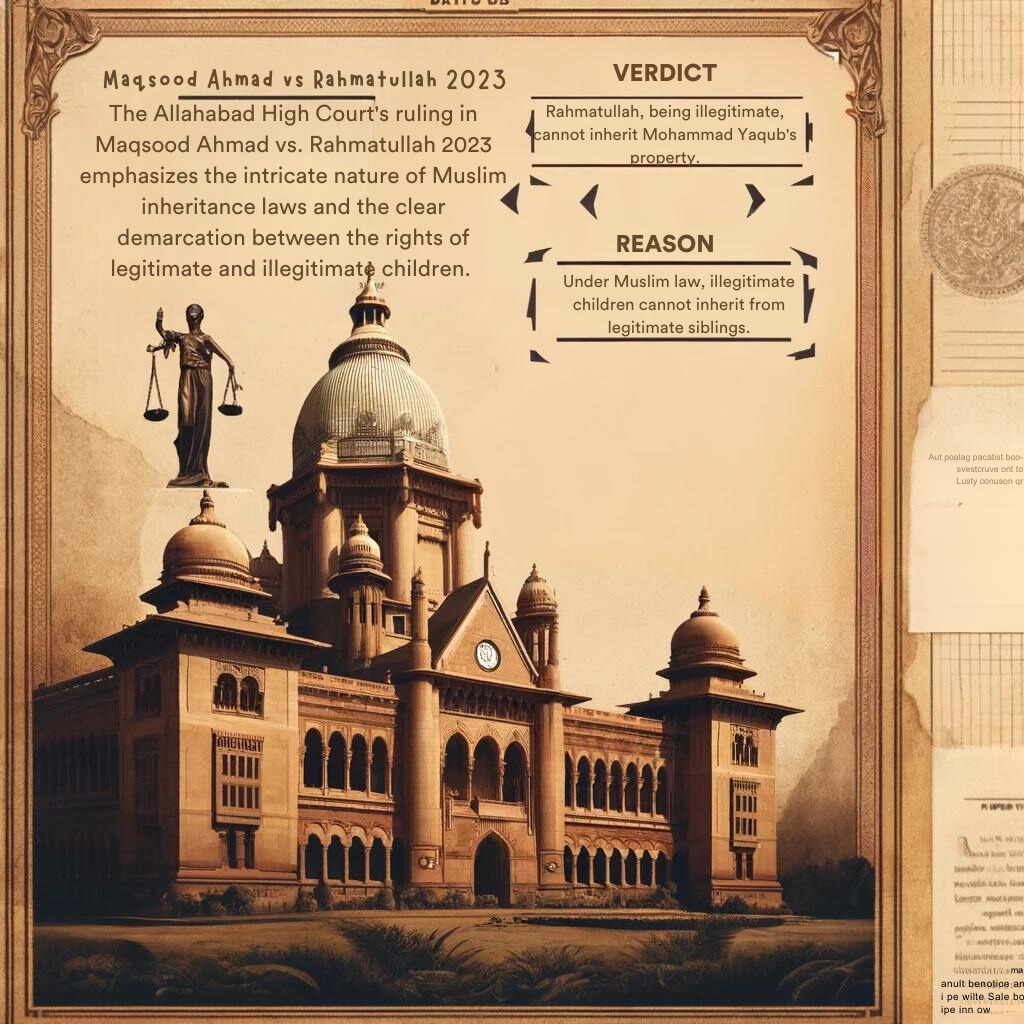
Introduction
This editorial explores a compelling legal battle that unfolded before the Allahabad High Court, involving intricate inheritance rights under Muslim law. The case of Maqsood Ahmad and his sisters versus Rahmatullah revolves around the question of whether an illegitimate child can inherit property as the uterine brother of a legitimate child. This case offers judicial aspirants a deep dive into the complex interplay between personal laws and inheritance rights.
Case Facts
- Plaintiffs and Defendants: Maqsood Ahmad and his sisters seek to reclaim their late uncle’s house, contested by Rahmatullah and his sons, who claim entitlement based on being the deceased’s uterine brother.
- Core Legal Contention: The heart of the dispute lies in whether Rahmatullah, as an illegitimate child, could inherit property under Muslim Law.
- Court Proceedings: The lower courts sided with the plaintiffs, dismissing Rahmatullah’s claim due to his illegitimacy and the invalid will presented by his sons.
- The Appeal: The Allahabad High Court examined the legitimacy issue and the rights of an illegitimate child to inherit under Muslim Law.
- Court’s Conclusion: It was decided that Rahmatullah had no right to the disputed property, showcasing the complexities of inheritance rights within Muslim Law.

Issues Involved
The Intersection of Legitimacy and Inheritance
The case raises critical questions about legitimacy, lineage, and inheritance, challenging traditional family notions and property rights.
Rights of Illegitimate Children
A deeper exploration into whether illegitimate children can inherit from their mother’s legitimate children highlights the nuanced interpretations of Muslim inheritance laws.
Observations
Defining Lineage and Rights
Muslim law’s stance on lineage significantly impacts the determination of rights for illegitimate children, with Rahmatullah’s lack of recognized nasab barring him from inheritance.
Hanafi Law’s Interpretation
The law allows illegitimate children to inherit from the mother and her relatives but not from a legitimate child of the mother by another marriage, a crucial point in this case.
Do not forget to read Daughter’s Right to Karta Position.
Conclusion
The Allahabad High Court’s ruling in Maqsood Ahmad vs. Rahmatullah 2023 emphasizes the intricate nature of Muslim inheritance laws and the clear demarcation between the rights of legitimate and illegitimate children. This case serves as a critical study for judiciary aspirants, highlighting the importance of balancing legal principles with equitable considerations. It prompts aspiring legal professionals to consider the broader implications of their decisions, especially in cases involving vulnerable parties and complex familial relationships. This case not only enriches our understanding of Muslim inheritance law but also prepares future legal practitioners for the challenges they will face in upholding justice and fairness.
